The Boston Tea Party Takes Colonists Past the Point of No Return
The Boston Tea Party is one of the most iconic moments in American history. In some ways, it sealed our fate to separate from England and become our own nation. The road that led to this watershed event began several years earlier with the Townshend Acts.
In 1767, Charles Townshend, the Chancellor of the Exchequer, proposed a series of measures collectively called the Townshend Acts. These laws covered a broad spectrum of issues including quartering soldiers, collecting customs duties, and enforcing anti-smuggling efforts. Additionally, one of his proposals, The Revenue Act, assigned an import duty on many items, including tea, glass, paints, paper, and lead, all of which had to be imported from Great Britain.
Although an indirect tax, it was opposed by many American colonists who saw this legislation as another attempt by Parliament to assert unconstitutional authority over the colonies. Colonial resistance to the entire package of the Townshend laws was swift and violent.
The Sons of Liberty, a sort of vigilante group formed in Massachusetts, began to intimidate men who either enforced the new laws or collected taxes associated with them. One method was to tar and feather the officials, and this practice was just as gruesome as it sounds.
The mob would take a person, strip them naked in a public space, tie them to a tree or wagon wheel, pour boiling tar over their body, and cover the tar with feathers. To add insult to injury, often these hooligans would mount the victim on a rail and parade them through town. Not exactly what most would call reasonable justice.
In any event, Parliament partially repealed the Revenue Act in March 1770. However, at the insistence of Lord Frederick North, the new Prime Minister, the tax on tea remained in place to assert “the right of taxing the Americans.” The King’s ministers simply were not willing to relinquish any power or control over the colonists. Not surprisingly, due to the tax, Americans largely spurned legally imported British tea.
For about three years, Parliament did not pass any significant legislation pertaining to the colonies and, not surprisingly, tensions between England and its American colonies relaxed a bit. However, Parliament passed the Tea Act in 1773 and reignited the fire of discontent.
The legislation was primarily aimed at rescuing the British East India Company (EIC), one of England’s largest companies. In many ways, this Act was an 18th century version of the corporate bailout. The EIC, which enjoyed a “tea” monopoly, had too much inventory due to the American’s refusal to purchase their product and was on the point of bankruptcy.
The Crown decided the EIC was too “big to fail” and devised legislation to rescue it. Basically, the Tea Act allowed the EIC to undercut the competition, both the smugglers of Dutch tea and legal tea brokers, even with the tea tax still in place. Despite the temptation of lower prices, colonial leaders recognized there was a larger issue at hand. Namely, purchasing this “taxed” tea would essentially vindicate Parliament’s right to tax the colonies.
Men like Samuel Adams of Massachusetts organized a boycott of the EIC tea, and this movement gained momentum in all major ports in the colonies. While the people in Philadelphia and New York refused to unload their shipments of tea and had it returned to England, the residents of Charleston took the tea off the cargo vessels but left it on the docks to rot away. However, in Boston, that hot bed of insurrection, things were a bit more contested.
Here, the Sons of Liberty refused to allow the tea to be unloaded, but they faced an equally determined governor, Thomas Hutchinson, who wanted the tea off the ships. Interestingly, two of his sons were tea agents who stood to gain if the tea was distributed.
The first tea shipment arrived in Boston Harbor on the Dartmouth in late November of 1773, and two more soon followed. After its arrival, by law, tea had to be unloaded within 20 days. On December 16, the twentieth day after the Dartmouth’s arrival, Sam Adams organized a meeting of his fellow Bostonians to discuss what to do about the tea.
Incredibly, 5,000 people (about 1/3 of the population of Boston) attended the gathering. Later that evening, the Sons of Liberty inspired by Adams, and many dressed as Indians, tossed 92,000 pounds of tea (valued at about $1.7 million today) into the harbor.
Naturally, these festivities did not go over well back in England. To reassert their authority, in March 1774, Parliament passed the Coercive Acts, dubbed the Intolerable Acts by Americans. This collection of laws would have the effect of speeding our journey to independence.
WHY IT MATTERS
So why should the Boston Tea Party matter to us today? This important event, possibly more so than any other from our colonial era, is emblematic of our resistance to British oppression.
But there is a lesson here for us about doing the wrong thing in the right cause. Resisting unfair treatment is good and proper but destroying private property and tarring and feathering someone who is simply trying to do their job is just wrong.
In some ways, the Boston Tea Party took us past the point of no return regarding our relationship with England. Even looking back, it is difficult to imagine how this fluid situation, at this point, could have led anywhere except to a complete separation from Great Britain.
SUGGESTED READING
The Boston Tea Party, written by Benjamin Labaree in 1964, is one of the most complete books on this memorable event in American history.
PLACES TO VISIT
The Boston Tea Party Museum in Boston is a fun and informative place to visit. It includes live actors, 18th century sailing vessels, and many exhibits.
Until next time, may your motto be “Ducit Amor Patriae,” Love of country leads me.

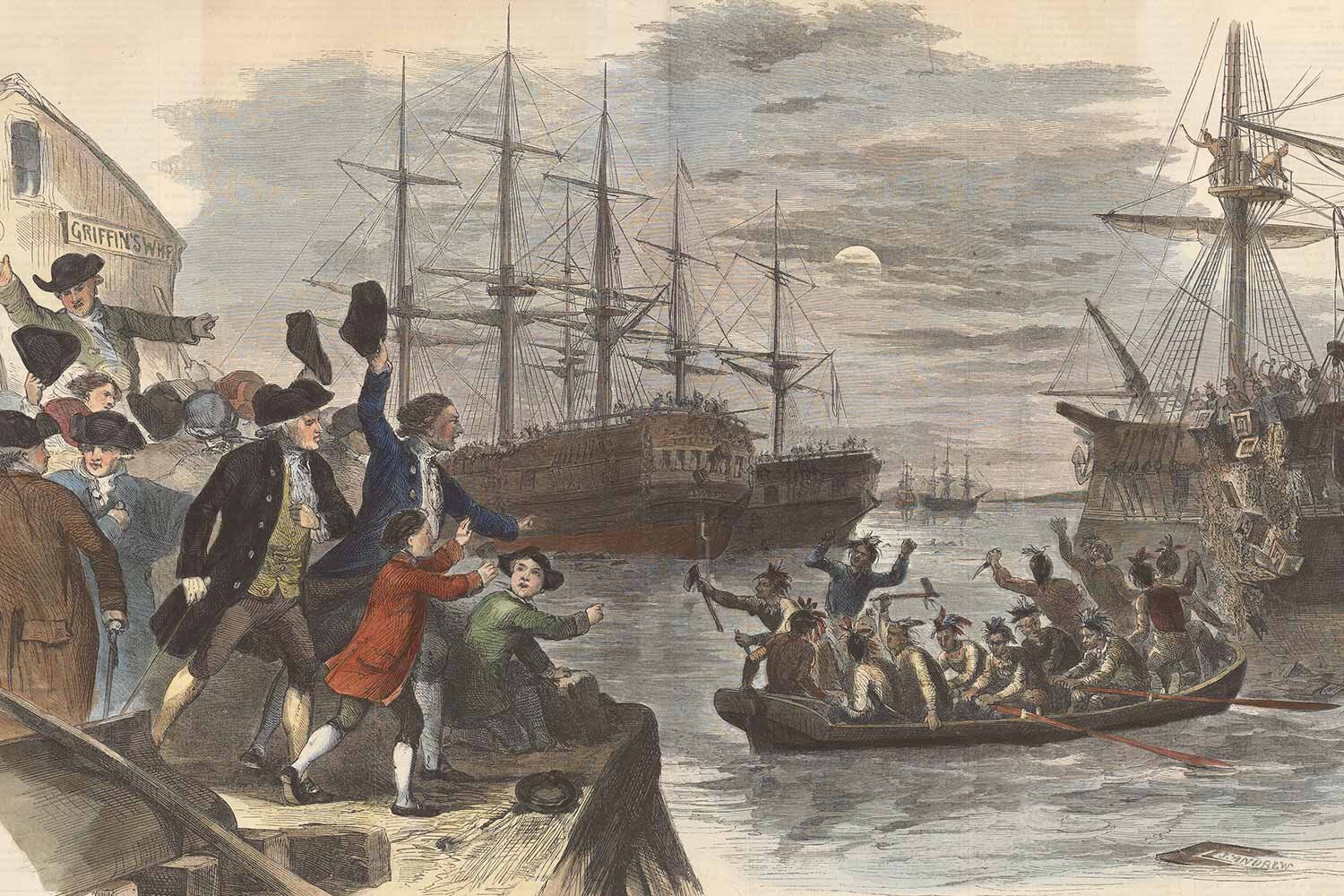
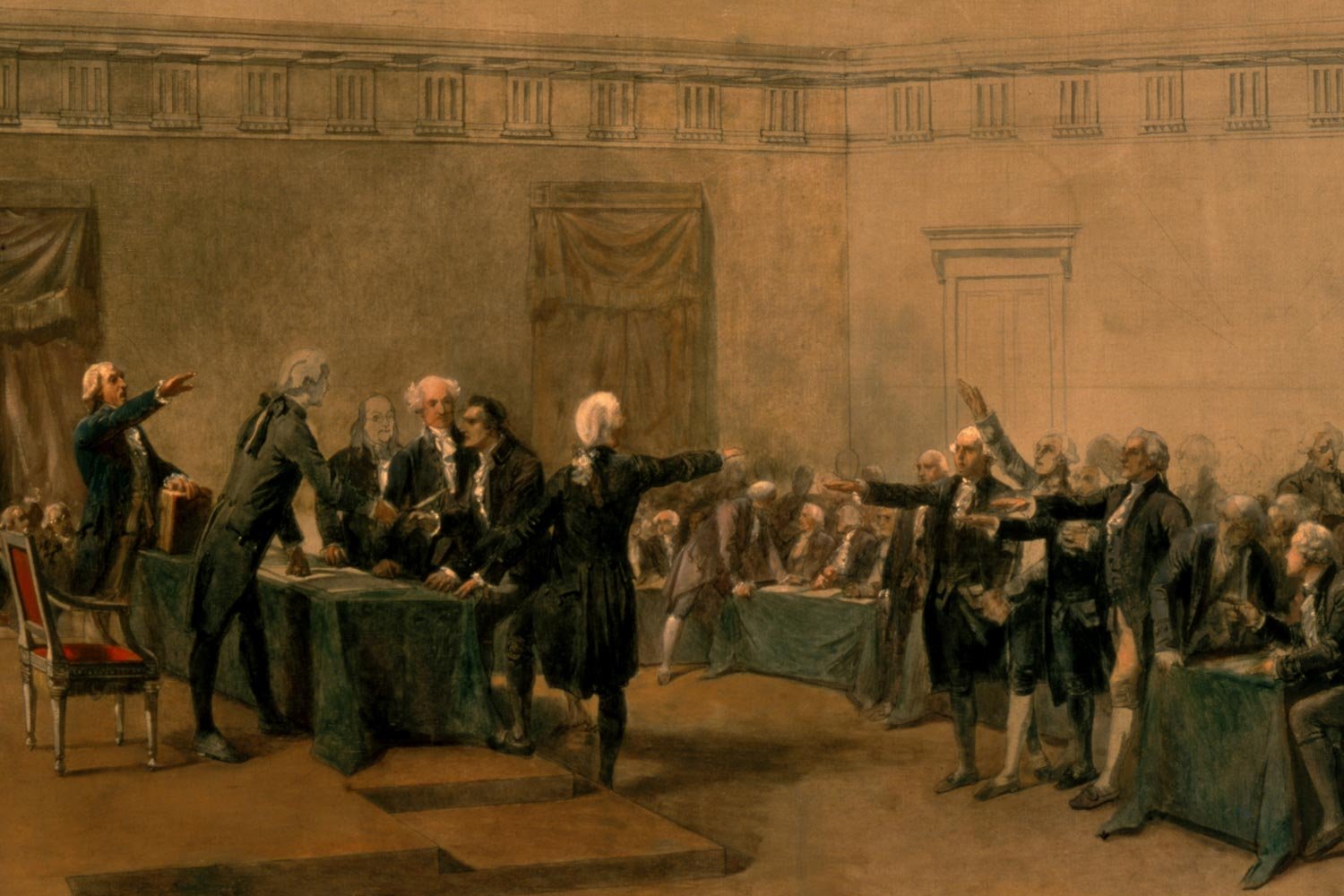
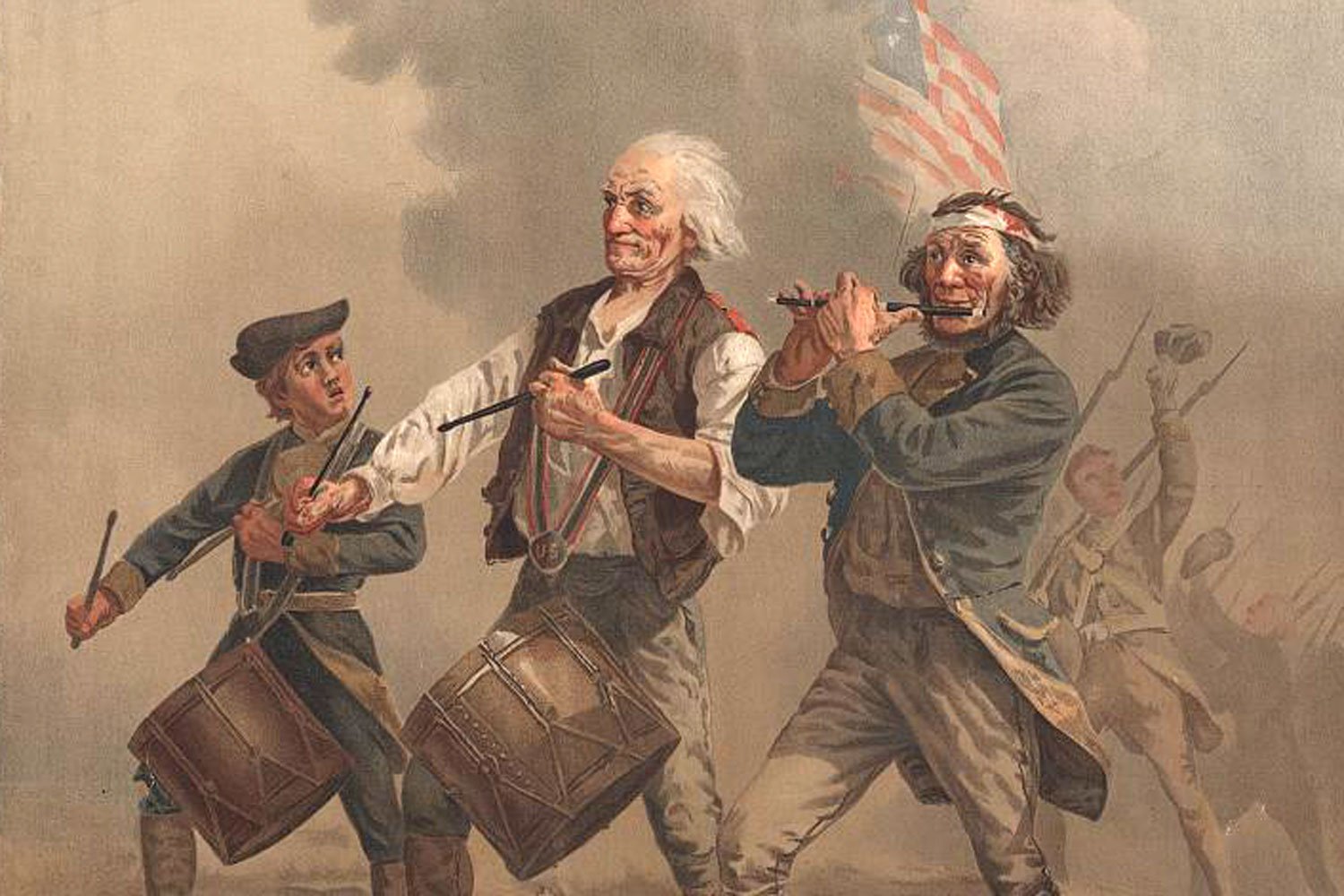
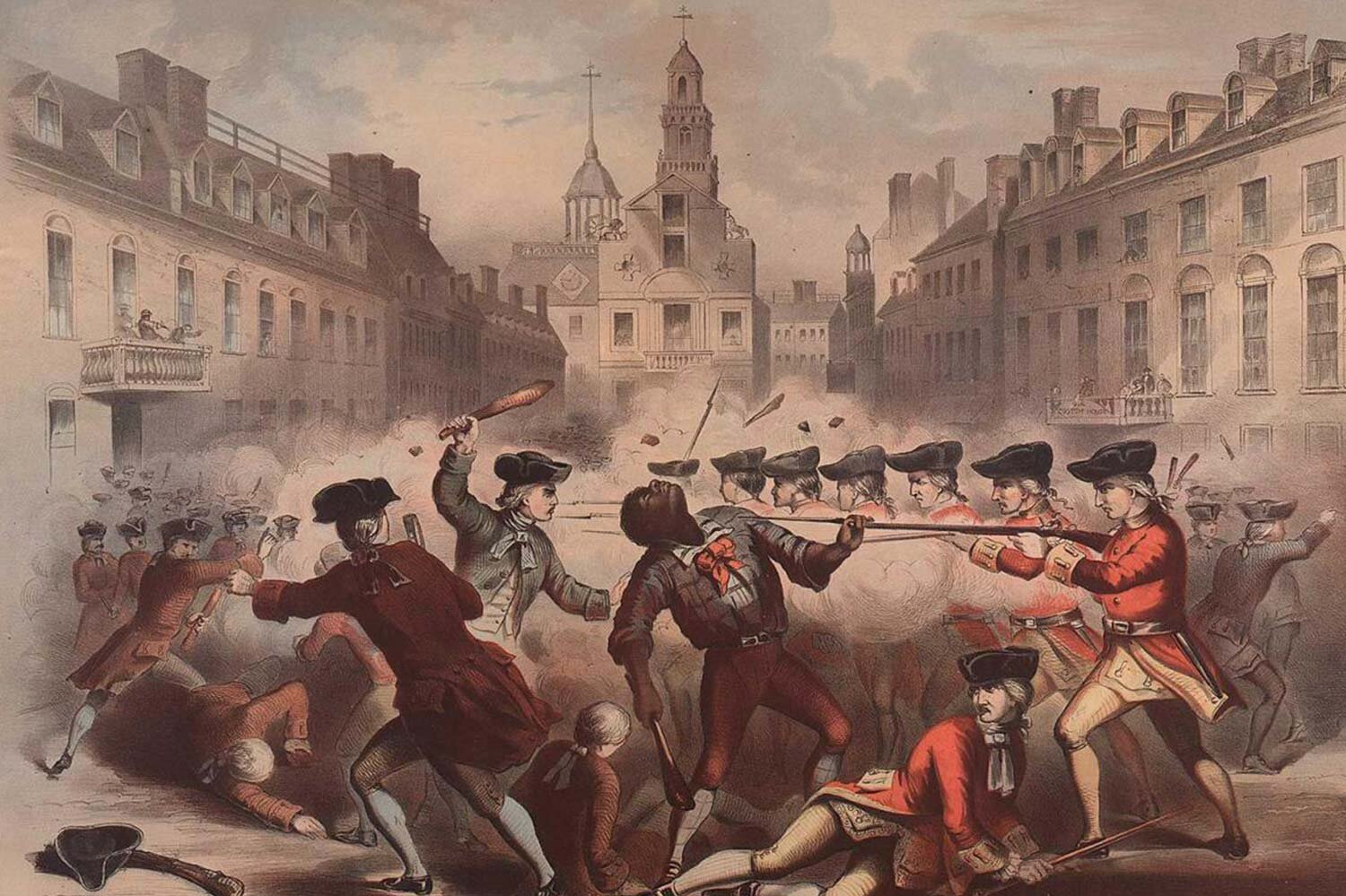
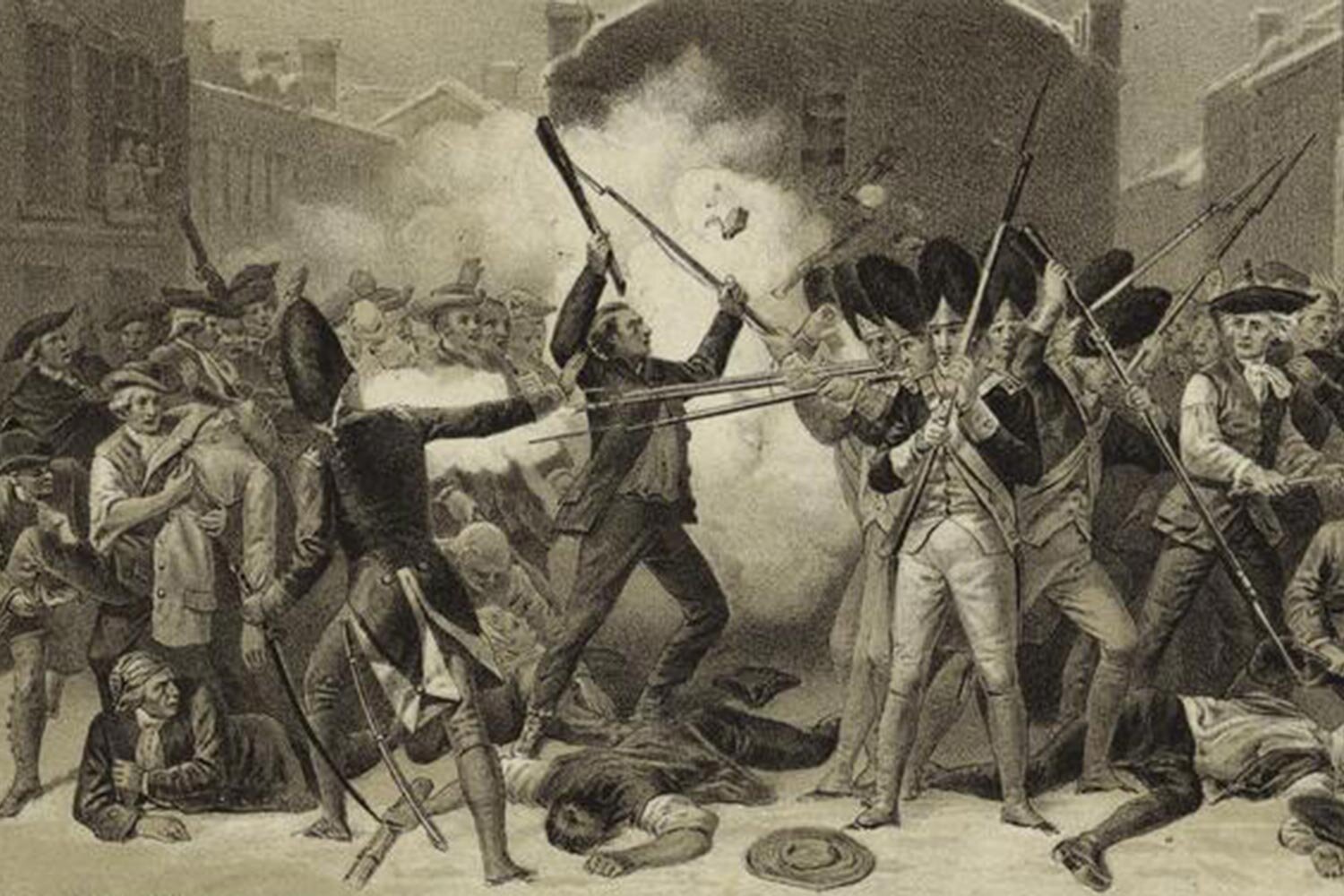
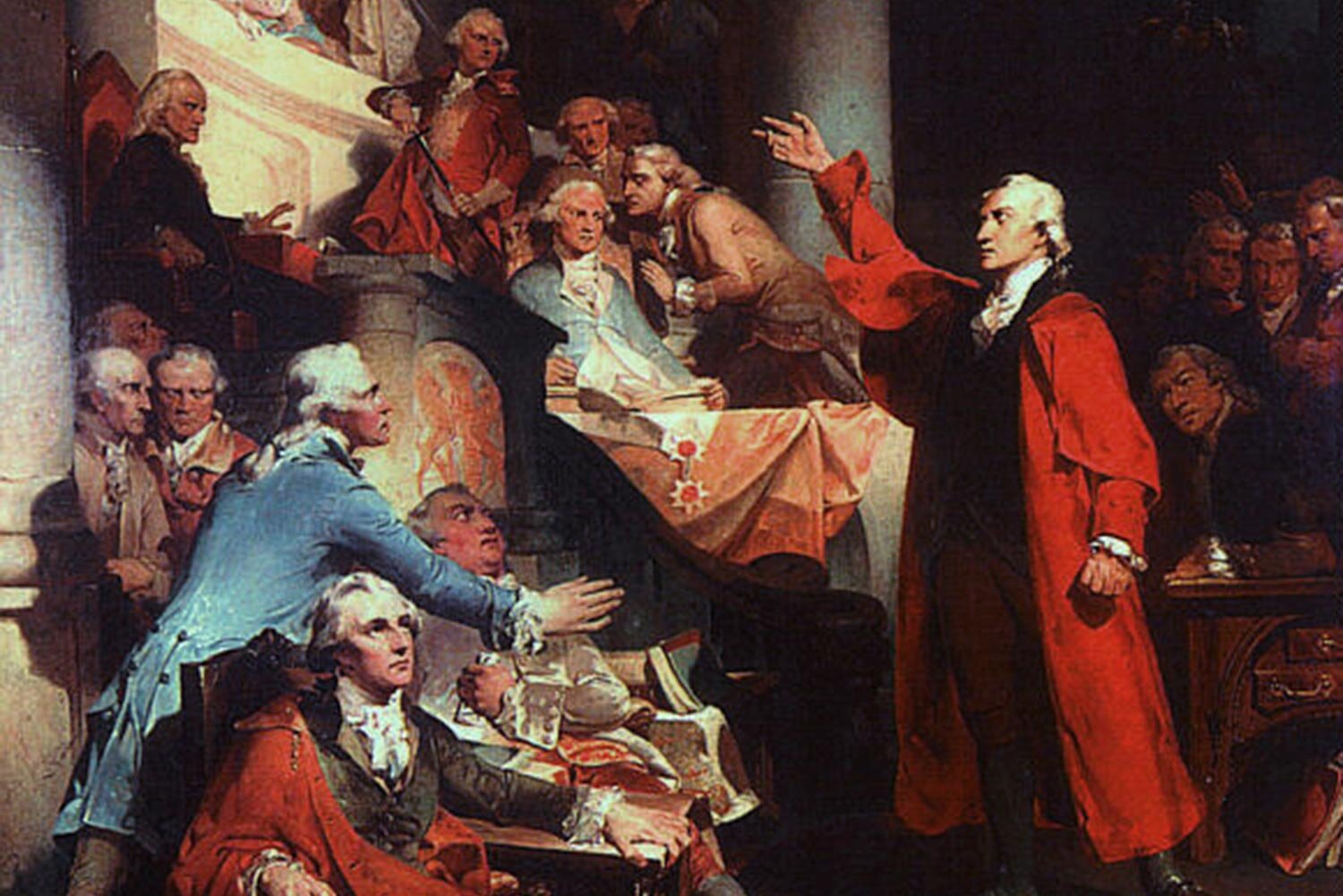
Partly due to Benjamin Franklin’s testimony before the House of Commons, the Stamp Act, which taxed items such as newspapers and legal documents, was repealed by Parliament on March 18, 1766. Unfortunately, this conciliatory measure was immediately undone when Parliament enacted the Declaratory Act which reasserted that all laws passed by that legislative body were binding on the colonies, including those related to taxes.